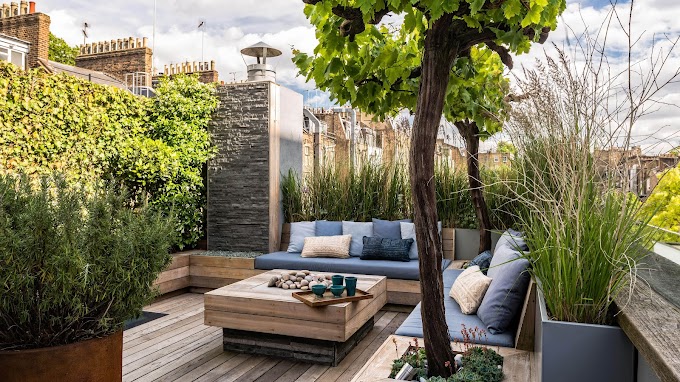Ghaziabad, a bustling city in the National Capital Region (NCR) of India, has seen remarkable growth and development in recent years. At the heart of this transformation are architects, whose creativity, expertise, and vision play a crucial role in shaping the city’s-built environment.
From designing innovative structures to revitalizing urban
spaces, architects
in Ghaziabad are highly sought after for their ability to enhance the
city's liability, sustainability, and aesthetics. This article delves into the
reasons why architects enjoy immense popularity in Ghaziabad through ten key
points.
10 Tips To Find The Best Architects in Ghaziabad
Urban Planning and Design:
Architects in Ghaziabad are instrumental in urban planning
and design, collaborating with urban planners, policymakers, and developers to
create well-organized and aesthetically pleasing urban spaces. They
conceptualize master plans, layouts, and zoning regulations that guide the
city's growth and development, ensuring efficient land use, infrastructure
provision, and environmental sustainability.
Architectural Innovation:
Architectural innovation is synonymous with Ghaziabad's
development, and architects are at the forefront of this innovation. They
leverage cutting-edge design concepts, materials, and technologies to create
iconic structures that redefine the city's skyline and architectural landscape.
From contemporary residential complexes to state-of-the-art commercial
buildings, architects in Ghaziabad push the boundaries of design to create
unique and impactful spaces.
Sustainable Design Practices:
With a growing emphasis on sustainability, architects in
Ghaziabad prioritize eco-friendly design practices in their projects. They
integrate green building techniques, energy-efficient systems, and renewable
materials to minimize environmental impact and promote resource conservation.
By prioritizing sustainability, commercial architects
contribute to Ghaziabad's resilience and environmental stewardship.
Infrastructure Planning and Development:
Architects play a crucial role in the planning and
development of essential infrastructure in Ghaziabad. They design
transportation systems, utilities, and civic amenities that enhance
connectivity, mobility, and quality of life for residents. Through innovative
infrastructure projects, architects contribute to Ghaziabad's development as a
modern and well-connected city.
Economic Growth and Development:
Architectural innovation and urban development drive
economic growth and development in Ghaziabad. Iconic architectural landmarks,
mixed-use developments, and vibrant urban spaces attract investment, stimulate
economic activity, and create employment opportunities. By fostering a
conducive business environment, architects contribute to Ghaziabad's prosperity
and competitiveness.
Community Engagement and Participatory Design:
Architects actively engage with local communities and
stakeholders to ensure that their designs reflect the needs and aspirations of
the people they serve. Through participatory design processes, architects
empower communities to co-create their built environment, fostering a sense of
ownership, pride, and social cohesion in Ghaziabad's neighbourhoods.
Preservation of Heritage and Culture:
Architects play a vital role in preserving Ghaziabad's rich
heritage and cultural identity. They restore heritage buildings, monuments, and
landmarks, integrating traditional architectural elements into their designs.
By celebrating the city's history and cultural diversity, architects contribute
to Ghaziabad's sense of place and identity.
Disaster Resilience and Climate Adaptation:
Architects design resilient buildings and infrastructure
that can withstand natural hazards and climate change impacts. By integrating
resilient design principles and innovative technologies into their projects,
architects enhance Ghaziabad's resilience and protect its inhabitants and
assets from environmental risks.
Education and Research:
Architects in Ghaziabad are actively involved in education
and research initiatives aimed at advancing the field of architecture and urban
planning. They mentor aspiring architects, conduct research on emerging trends
and technologies, and contribute to academic institutions and professional
organizations, fostering a culture of innovation and knowledge-sharing.
Vision for the Future:
Architects in Ghaziabad envision a future characterized by
sustainable, inclusive, and thriving communities. They propose visionary
projects and urban interventions that anticipate emerging trends, challenges,
and opportunities, shaping Ghaziabad into a dynamic, resilient, and liveable
city for generations to come.
Conclusion:
Architects are integral to Ghaziabad's growth and
development, playing a pivotal role in shaping the city's urban landscape and
identity. From urban planning and architectural innovation to sustainability,
community engagement, and economic development, most
famous architects contribute to making Ghaziabad a vibrant, resilient, and
inclusive city.
As Ghaziabad continues to evolve, the contributions of
architects will remain essential in creating a sustainable, equitable, and
prosperous urban environment for all.







0 Comments